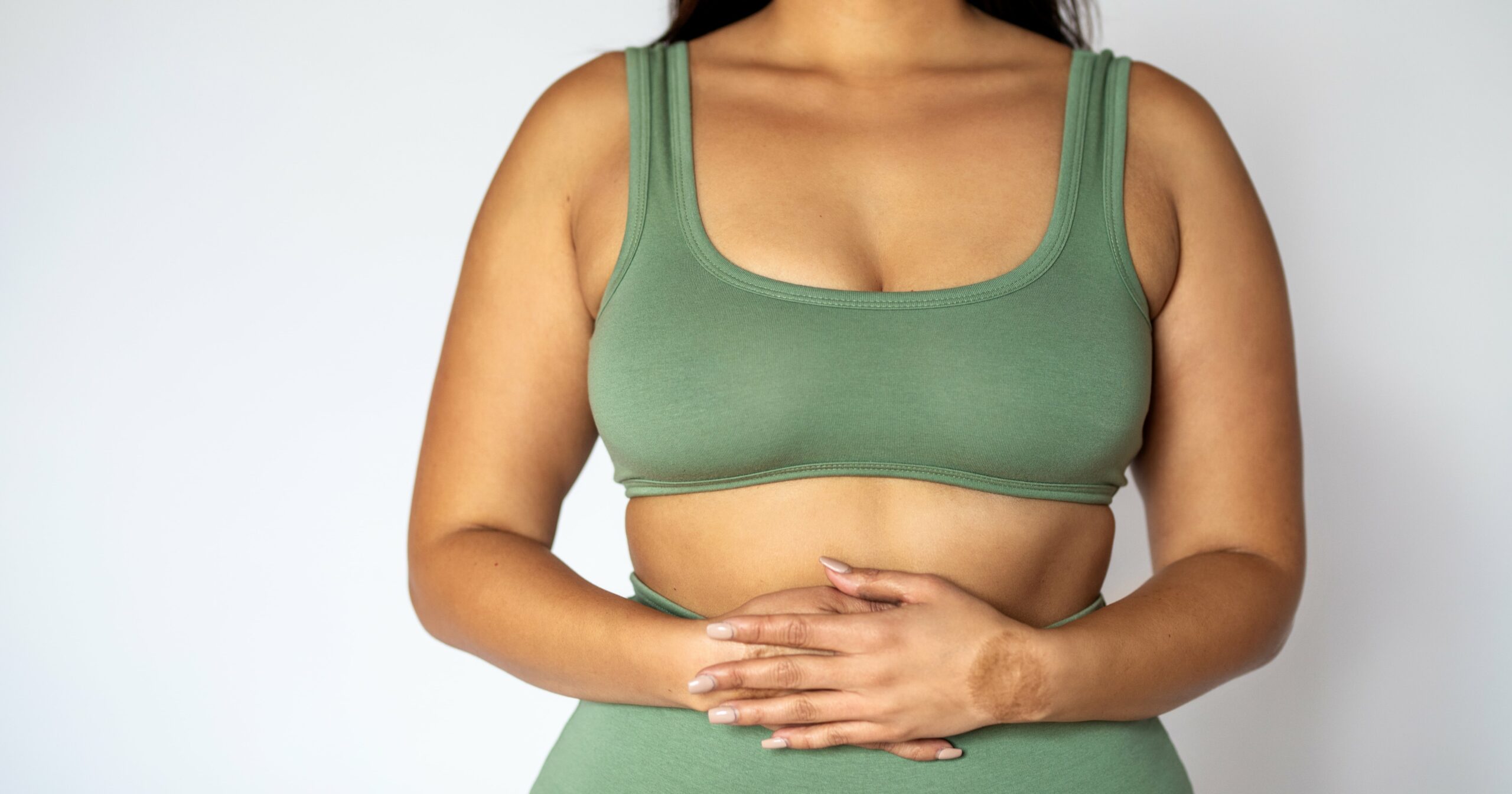Period bloating can be so uncomfortable. Right before that time of the month enters my life, I find myself wanting to wear everything and anything baggy, as my stomach feels like an inflated water balloon that’s begging for someone to make it pop. It’s just one of many PMS symptoms that make you want to stay in bed and hug a pillow, making it hard to function before your menstrual cycle begins.
But lately, I’ve found myself dealing with extreme bloating before my period wondering why it’s happening and what in the world I can do to stop it. If you’ve dealt with pre-period bloating before, then you’ve probably had the same question. Here’s what experts have to say about bloating before a period and how to reduce period bloating.
Experts Featured in This Article
Ann Mullen is the director of health education at Cycle Technologies.
Samantha Salmon is a certified holistic health coach and the author of “You Can Afford to Be Healthy.”
Bloating Before a Period? Here’s What’s Causing It
According to the Mayo Clinic, bloating a week before your period of even just a few days ahead of it is completely normal. In fact, it’s due to water retention, caused by fluctuations in your hormones. But it can also be triggered by your diet.
“Most women who menstruate experience symptoms such as bloating one to two days before the start of their periods,” the Mayo Clinic states. “Others regularly experience symptoms during the five days before their periods that interfere with some of their normal activities. This is called premenstrual syndrome (PMS).”
“After you’ve ovulated mid cycle, you may notice your abdomen starting to bloat somewhat. This tends to increase as you get closer to your period,” says Ann Mullen, director of health education at Cycle Technologies.
Mullen shared that about five days before your period, it’s normal for bloating to increase day by day and then peak on the first day of menstruation. After the next few days of your period, the water retention should decline and your tummy should flatten.
How to Reduce Period Bloating
Your hormones will fluctuate whether you want them to or not. But one way you can fight the bloat is to make small changes to your diet to minimize premenstrual water retention, according to Samantha Salmon, a certified holistic health coach and the author of “You Can Afford to Be Healthy.”
So does that mean we should ditch PMS comfort foods like pizza and ice cream? Salmon said yes. “Eating lots of fruits and vegetables, specifically potassium-rich foods (dark leafy greens, sweet potatoes, and bananas) and diuretics (ginger, pineapple, and cucumber), help to alleviate the bloat,” Salmon said. “Exercising, drinking lots of water, and avoiding processed foods can also help.”
Avoiding salt can help too, per the Mayo Clinic, since salt forces your body to retain water, which is why you might want to put the chips, processed foods, and fast food aside before that time of the month.
The Mayo Clinic also suggests magnesium supplements (with a doctor’s consultation) and water pills (diuretics), prescription medications that can help reduce fluid buildup. Just be sure to chat with your doctor about other medications that you’re regularly taking. Nonsteroidal anti-inflammatory drugs (NSAIDs), in particular, like ibuprofen (Advil, Motrin IB, others) or naproxen sodium (like Aleve) when taken with diuretics can cause kidney damage.
Another useful tip to stay on top of your bloating is to track your symptoms. “It’s a good idea to track your symptoms over the entire cycle so that you start to recognize your own pattern and learn what to expect and what’s normal for you,” Mullen said. A period tracker can be a handy tool for this so you know when to expect the bloating. Keeping a symptom diary can also help your doctors “confirm that your symptoms are related to your menstrual cycle, rather than other causes,” the Mayo Clinic states.
Ultimately, bloating before a period is completely normal. But with these small lifestyle adjustments and tips, hopefully you can minimize your water retention and reduce bloating once and for all. And if bloating continues to be a concern of yours or becomes painful, be sure to consult your doctor so they can assess the symptoms, rule out other conditions, and determine the best treatment, per Mayo Clinic.
– Additional reporting by Alexis Jones
Jen Glantz is a PS contributor.
Alexis Jones is the senior health and fitness editor at PS. Her passions and areas of expertise include women’s health and fitness, mental health, racial and ethnic disparities in healthcare, and chronic conditions. Prior to joining PS, she was the senior editor at Health magazine. Her other bylines can be found at Women’s Health, Prevention, Marie Claire, and more.



